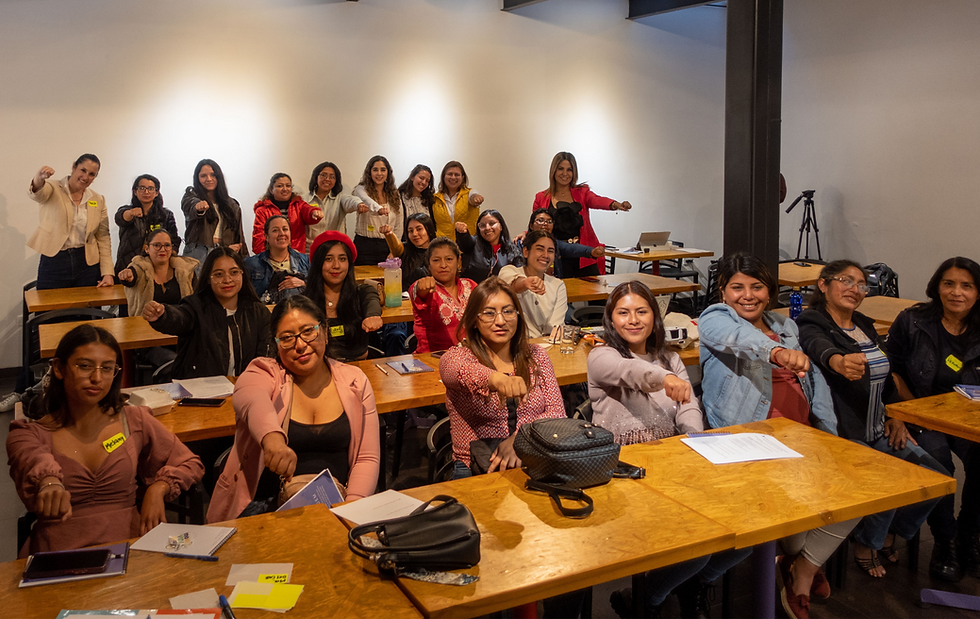Walking the city with 1,363 stories: What Kochi’s mobility survey reveals about women’s access and safety
- Thamires Pecis

- Jul 14, 2025
- 3 min read
Updated: Sep 12, 2025
In Kochi, 62% of women have no access to a personal vehicle, and even in vehicle-owning households, only 38% say the vehicle is available to them. In contrast, 85% of men in those households enjoy unrestricted access. Worried about the numbers? That’s why the MobiliseHER project is working to build safer and more inclusive transport systems.
We started with the most important step: listening to users. The surveys were conducted by the Kerala Association of Professional Social Workers (KAPS) with 1,363 participants in Kochi, 69% of whom were women, highlighting a deliberate focus on gendered experiences of mobility. To reflect a wide range of commuting realities, data was collected from transit hubs, universities, residential areas, and informal workspaces.
“An often overlooked but deeply significant outcome of the MobiliseHER fieldwork was the way the survey process itself functioned as an awareness-building exercise,” explains Dr. Shaly M O, social work professional and local leader with the Kerala Association of Professional Social Workers (KAPS). She continues:
“When a woman spends 20–30 minutes thoughtfully engaging with questions about her daily travel patterns, safety concerns, and infrastructure needs, it becomes a moment of self-recognition. Several had never been asked such detailed questions before, and this realization, in itself, is empowering.”

What the survey reveals about mobility in Kochi
In addition to access disparities, the surveys highlight that safety remains a pressing concern:
66.5% of women reported feeling unsafe during specific times or in certain locations, nearly double the percentage of men.
Walking, often the only option for low-income women, more than doubles the odds of feeling unsafe.
The results also reveal the most transport-deprived group: 100% of women without household vehicle access also reported no riding ability.
And when it comes to digital tools, mobility apps don’t guarantee confidence. Even among digitally aware women, 63% still report fear while commuting. These insights underscore that technology alone doesn’t ensure safety or autonomy, especially for women.
“I strongly believe that gender-responsive development models that view mobility not merely as transportation, but as a pathway to dignity, opportunity, and social inclusion can significantly enhance women’s mobility and ultimately lead to their empowerment,” adds Dr. Shaly. “Projects that promote freedom of movement, safety in public spaces, equal participation in decision-making, and respect in everyday life are the need of the hour.”
The intersection of gender, income, digital access, and household dynamics continues to limit women’s freedom of movement.
Kochi and the MobiliseHER project
As one of India’s major economic and transportation hubs, Kochi still faces significant challenges in making urban mobility safe and inclusive, particularly for women and marginalized communities.
Kochi was chosen as one of three pilot cities for the MobiliseHER project. MobiliseHER is a three-year project, co-funded by EuropeAid, to enable gender-responsive urban mobility and create more accessible and inclusive infrastructure and services, undertaken in partnership with Urban Electric Mobility Initiative (UEMI), WRI India, CEPT Research and Development Foundation (CRDF) and Participatory Research in Asia India (PRIA India).
The project is also being implemented in Ahmedabad and Bengaluru, aiming to strengthen the role of civil society organizations (CSOs) in transport planning and decision-making.
MobiliseHER is a three-year project, co-funded by EuropeAid, and implemented by a partnership between:
Urban Electric Mobility Initiative (UEMI)
WRI India
CEPT Research and Development Foundation (CRDF)
Participatory Research in Asia (PRIA India)
We listened and now it is time to action
The Commuter Perception Survey investigates the gendered dynamics of mobility in India by analyzing how access, safety, income, skill, and digital use intersect to shape everyday travel.
We understand that mobility is not just about infrastructure; it’s about autonomy, control, and safety. Through user-centric surveys in Kochi, we’ve heard voices that are too often overlooked - real stories, daily challenges, and hopes for safer, more equitable transport.
These numbers are just part of a broader analysis that directly supports MobiliseHER’s goal: To create gender-inclusive, affordable, and safe urban mobility systems. Now, we turn insights into action.




Comments